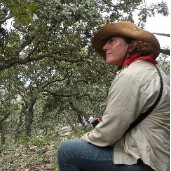Conservation of Cultural and Biological Diversity in the Mesoamerican Region II
A special issue of Diversity (ISSN 1424-2818). This special issue belongs to the section "Biodiversity Conservation".
Deadline for manuscript submissions: closed (31 December 2023) | Viewed by 3437
Special Issue Editors
Interests: secondary metabolites; Mexican plants; valorization of species of the tropical dry forest
Special Issues, Collections and Topics in MDPI journals
Interests: Wildlife Management; Wildlife Conservation; Landscape Ecology; Roadside Ecology
Interests: natural resource management; ethnozoology; wildlife management and conservation
Interests: conservation; biodiversity; bioculturality; environmental education; ecotourism
Special Issue Information
Dear Colleagues,
The Mesoamerican Society for Biology and Conservation (SMBC, for its acronym in Spanish) organizes, annually, one of the most important regional academic congresses for professionals and students working in the biology and conservation of cultural and biological diversity of the Mesoamerican region. The event brings together the region’s scientific community to share the main findings, discuss ideas, and create thematic networks that allow us to follow up on our country’s most environmental issues. In 2022, the 25th occurrence of our great event had the support of the Society for Conservation Biology and Motocle A.C., and five universities: Universidad Autónoma del Estado de Morelos, Universidad Juárez Autónoma de Tabasco, Universidad Autónoma de Sinaloa, Universidad de la Sierra de Juárez, and Universidad de Panamá. For the first time, the congress was carried out in a hybrid and multi-site manner, with the following motto, AS ONE EARTH, signifying that we are united for conservation to live in harmony with nature. The program consisted of 37 events: 11 magistral conferences, 9 symposia, 8 workshops, 5 book presentations, 2 expositions, 2 competitions, and 1 discussion panel on the topic of the congress.
Researchers are invited to submit their extended papers to this second Special Issue on the conservation of cultural and biological diversity in the Mesoamerican region, published by Diversity. Titles and short abstracts (150–200 words) can be sent to congresosmbc.laca.2022@gmail.com before the 15th of March 2023 by including Diversity in the subject line.
Dr. Kalina Bermúdez Torres
Dr. Coral Jazvel Pacheco Figueroa
Dr. Alejandro García Flores
Dr. Yamel Guadalupe Rubio Rocha
Dr. Victor Aguirre Hidalgo
Guest Editors
Manuscript Submission Information
Manuscripts should be submitted online at www.mdpi.com by registering and logging in to this website. Once you are registered, click here to go to the submission form. Manuscripts can be submitted until the deadline. All submissions that pass pre-check are peer-reviewed. Accepted papers will be published continuously in the journal (as soon as accepted) and will be listed together on the special issue website. Research articles, review articles as well as short communications are invited. For planned papers, a title and short abstract (about 250 words) can be sent to the Editorial Office for assessment.
Submitted manuscripts should not have been published previously, nor be under consideration for publication elsewhere (except conference proceedings papers). All manuscripts are thoroughly refereed through a single-blind peer-review process. A guide for authors and other relevant information for submission of manuscripts is available on the Instructions for Authors page. Diversity is an international peer-reviewed open access monthly journal published by MDPI.
Please visit the Instructions for Authors page before submitting a manuscript. The Article Processing Charge (APC) for publication in this open access journal is 2100 CHF (Swiss Francs). Submitted papers should be well formatted and use good English. Authors may use MDPI's English editing service prior to publication or during author revisions.
Keywords
- biodiversity
- conservation
- wildlife management
- biodiversity impact
- culture and traditional knowledge preservation
- Mesoamerican region
Benefits of Publishing in a Special Issue
- Ease of navigation: Grouping papers by topic helps scholars navigate broad scope journals more efficiently.
- Greater discoverability: Special Issues support the reach and impact of scientific research. Articles in Special Issues are more discoverable and cited more frequently.
- Expansion of research network: Special Issues facilitate connections among authors, fostering scientific collaborations.
- External promotion: Articles in Special Issues are often promoted through the journal's social media, increasing their visibility.
- Reprint: MDPI Books provides the opportunity to republish successful Special Issues in book format, both online and in print.
Further information on MDPI's Special Issue policies can be found here.









